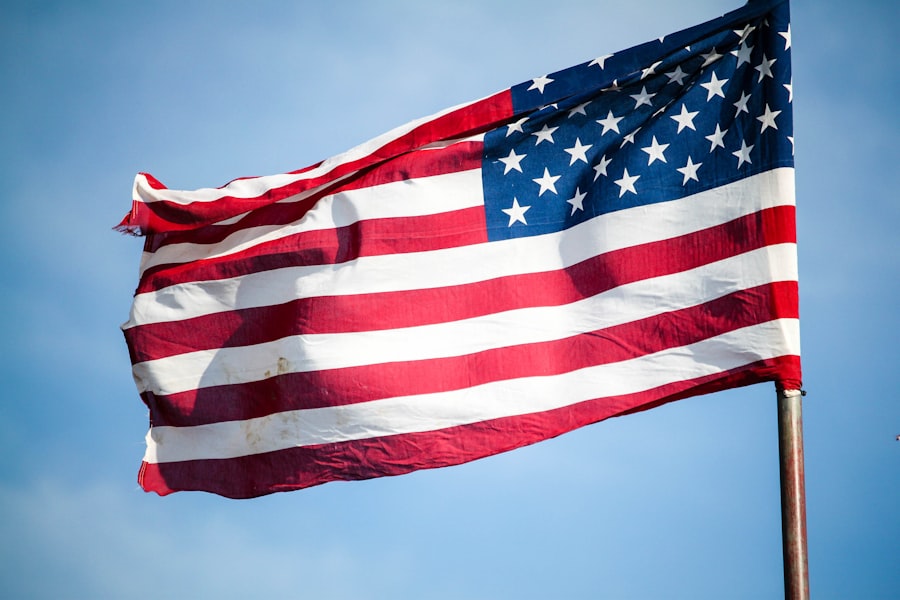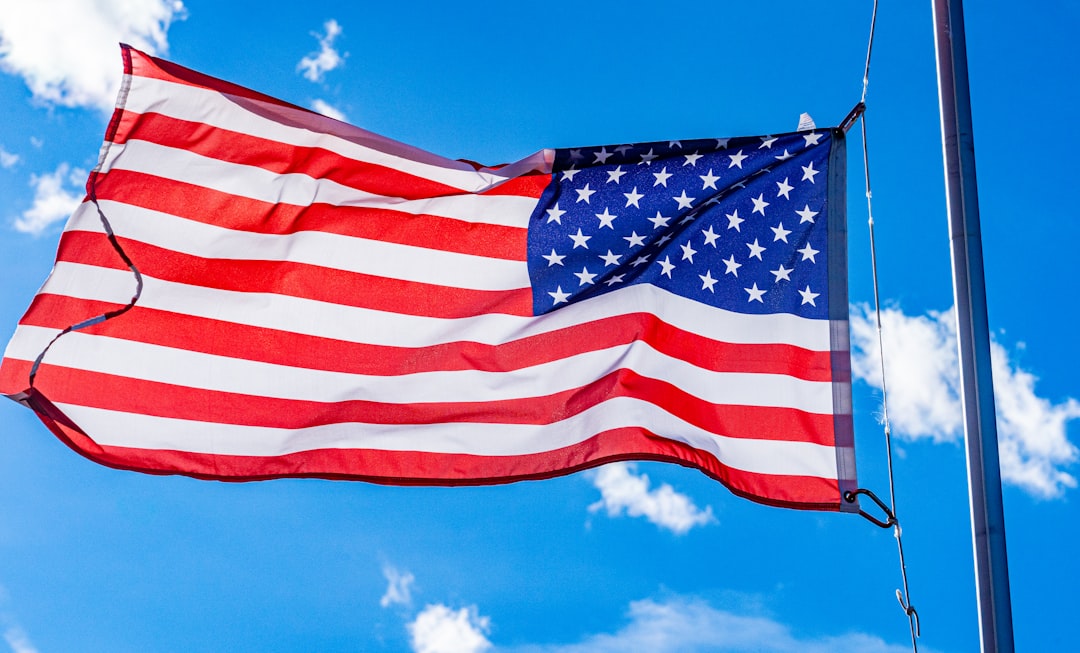In an increasingly interconnected world, the dynamics of international trade and consumer preferences have led to a complex landscape where certain American products face bans in various countries. These prohibitions often stem from a combination of health, environmental, and ethical concerns, reflecting the diverse values and priorities of different nations. As American companies strive to expand their global reach, they must navigate a myriad of regulations and cultural expectations that can significantly impact their operations.
Understanding the reasons behind these bans and their implications is crucial for both consumers and businesses alike. The phenomenon of American products being banned abroad is not merely a reflection of local preferences but also highlights the growing scrutiny of corporate practices and product safety standards. As countries prioritize the well-being of their citizens and the environment, they may impose restrictions on products that do not align with their regulatory frameworks.
This article delves into the common American products that have faced bans, the reasons behind these decisions, and the broader implications for American companies operating on a global scale.
Key Takeaways
- American products are banned globally due to health and environmental concerns, trade and economic ramifications, and consumer awareness.
- Common American products banned in other countries include certain food additives, pesticides, and chemicals used in personal care products.
- Global bans on American products are often due to concerns about their impact on human health and the environment.
- American companies are impacted by global bans through loss of market access and potential damage to their reputation.
- Efforts to address global concerns include developing alternatives to banned American products and increasing consumer awareness and choices.
Common American Products Banned in Other Countries
Several American products have garnered attention for being banned in various parts of the world. One notable example is certain food items containing artificial ingredients or additives that are deemed unsafe or unhealthy by foreign regulatory bodies. For instance, the use of high fructose corn syrup and artificial colorings in food products has led to bans in countries like Canada and several European nations, where stricter food safety regulations are enforced.
These countries often prioritize natural ingredients and transparency in food labeling, leading to a rejection of products that do not meet their standards. Another category of American products facing bans includes cosmetics and personal care items that contain specific chemicals considered harmful. For example, certain brands of hair straighteners and skin creams have been prohibited in the European Union due to their inclusion of substances linked to health risks.
The EU’s stringent regulations on cosmetic safety reflect a broader commitment to consumer protection, prompting many American companies to reformulate their products or risk losing access to lucrative markets.
Reasons for Global Bans on American Products

The reasons behind the global bans on American products are multifaceted, often rooted in health concerns, environmental considerations, and ethical standards. Health-related issues frequently arise from the use of ingredients or materials that are considered hazardous. For instance, the presence of trans fats in food products has led to widespread bans in several countries, as these fats are linked to cardiovascular diseases.
Nations that prioritize public health may take proactive measures to eliminate such risks by restricting the sale of products containing harmful substances. Environmental concerns also play a significant role in the decision to ban American products. Many countries have adopted stringent regulations aimed at reducing pollution and protecting natural resources.
For example, certain pesticides used in American agriculture have been banned in Europe due to their detrimental effects on biodiversity and ecosystems. These bans reflect a growing global awareness of environmental sustainability and the need for responsible consumption practices.
Impact of Global Bans on American Companies
| Country | Impact on American Companies |
|---|---|
| China | Decreased market access and potential loss of revenue |
| Russia | Restriction on business operations and investment |
| Iran | Limited trade opportunities and challenges in financial transactions |
| Cuba | Trade embargo leading to loss of potential market |
The impact of global bans on American companies can be profound, affecting everything from sales revenue to brand reputation. When a product is banned in a key market, companies may experience significant financial losses as they lose access to potential customers. This can be particularly challenging for smaller businesses that rely heavily on international sales for their growth.
The inability to sell certain products can force companies to pivot their strategies, either by reformulating their offerings or by seeking alternative markets where their products remain acceptable. Moreover, global bans can also tarnish a company’s reputation, especially if consumers perceive the bans as a reflection of poor quality or safety standards. In an age where information spreads rapidly through social media and online platforms, negative publicity can have lasting effects on brand loyalty and consumer trust.
Companies may find themselves under increased scrutiny as they work to address the concerns that led to the bans, necessitating a commitment to transparency and accountability in their practices.
Health and Environmental Concerns
Health and environmental concerns are at the forefront of many global bans on American products. As scientific research continues to uncover the potential risks associated with certain chemicals and ingredients, countries are becoming more vigilant in protecting their populations from harm. For instance, the banning of specific food additives or preservatives often stems from studies linking these substances to adverse health effects, prompting governments to take precautionary measures.
Environmental issues are equally pressing, as nations grapple with the consequences of pollution and climate change. The use of certain plastics, pesticides, and industrial chemicals has raised alarms about their long-term impact on ecosystems and human health. Countries that prioritize environmental sustainability may impose bans on American products that contribute to these problems, reflecting a commitment to preserving natural resources for future generations.
Trade and Economic Ramifications

The trade and economic ramifications of global bans on American products extend beyond individual companies; they can influence entire industries and economies. When a significant market restricts access to American goods, it can disrupt supply chains and alter competitive dynamics within various sectors. This can lead to increased costs for businesses as they seek alternative materials or production methods that comply with foreign regulations.
Additionally, trade relationships between countries can be strained by these bans. Nations may view restrictions on American products as protectionist measures or as an indication of distrust in U.S. manufacturing practices.
This can complicate diplomatic relations and lead to retaliatory actions, further exacerbating tensions in international trade. As countries navigate these complexities, they must balance domestic priorities with the need for healthy trade partnerships.
American Response to Global Bans
In response to global bans on their products, American companies have begun to adapt their strategies in various ways. Many businesses are investing in research and development to reformulate their products in compliance with international standards. This proactive approach not only helps them regain access to banned markets but also demonstrates a commitment to consumer safety and environmental responsibility.
Furthermore, some companies are engaging in dialogue with foreign regulators to better understand the concerns driving these bans. By fostering open communication, they can work collaboratively to address issues while ensuring that their products meet local expectations. This approach not only helps mitigate the impact of bans but also positions companies as responsible global citizens committed to ethical practices.
Efforts to Address Global Concerns
Efforts to address global concerns surrounding American products have gained momentum in recent years. Many companies are adopting sustainability initiatives aimed at reducing their environmental footprint and improving product safety. This includes sourcing materials responsibly, minimizing waste during production, and implementing eco-friendly packaging solutions.
Additionally, industry associations and advocacy groups are working together to promote best practices among American manufacturers. By sharing knowledge and resources, these organizations aim to elevate standards across the board, ensuring that American products align with global expectations for health and safety. Such collaborative efforts not only benefit individual companies but also enhance the overall reputation of American goods in international markets.
Alternatives to Banned American Products
As certain American products face bans abroad, consumers are increasingly turning to alternatives that meet local standards.
For instance, consumers may opt for locally produced food items that adhere to stricter regulations or choose personal care products made from natural ingredients.
The rise of alternative products has also prompted innovation within industries affected by bans. Companies are exploring new formulations and materials that align with consumer preferences while addressing regulatory concerns. This adaptability not only helps businesses thrive despite challenges but also encourages a culture of continuous improvement within the marketplace.
Consumer Awareness and Choices
Consumer awareness plays a pivotal role in shaping market dynamics when it comes to banned American products. As individuals become more informed about health risks and environmental issues associated with certain goods, they are more likely to make conscious choices about what they purchase. This shift towards informed consumerism has led many brands to prioritize transparency in their marketing efforts.
Moreover, social media platforms have amplified consumer voices, allowing individuals to share their experiences with specific products and advocate for change. This increased scrutiny has prompted companies to take action in response to public demand for safer and more sustainable options. As consumers continue to prioritize ethical considerations in their purchasing decisions, businesses must adapt or risk losing relevance in an evolving marketplace.
Future Outlook for American Products Globally
The future outlook for American products globally is likely to be shaped by ongoing trends in health consciousness, environmental sustainability, and consumer preferences. As countries continue to implement stricter regulations aimed at protecting public health and the environment, American companies will need to remain agile in their approach to product development and marketing. In this evolving landscape, collaboration between businesses, regulators, and consumers will be essential for fostering positive change.
By embracing innovation and prioritizing ethical practices, American companies can position themselves as leaders in global markets while addressing the concerns that have led to product bans. Ultimately, the ability to adapt and respond proactively will determine the success of American products on the international stage in the years to come.
In recent years, various American products have faced bans in different parts of the world due to regulatory, health, or environmental concerns. For instance, certain food items and cosmetics have been prohibited in the European Union due to their use of ingredients that are not approved under EU regulations. To gain a deeper understanding of the complexities surrounding these bans and the specific products affected, you can explore a related article on this topic by visiting
